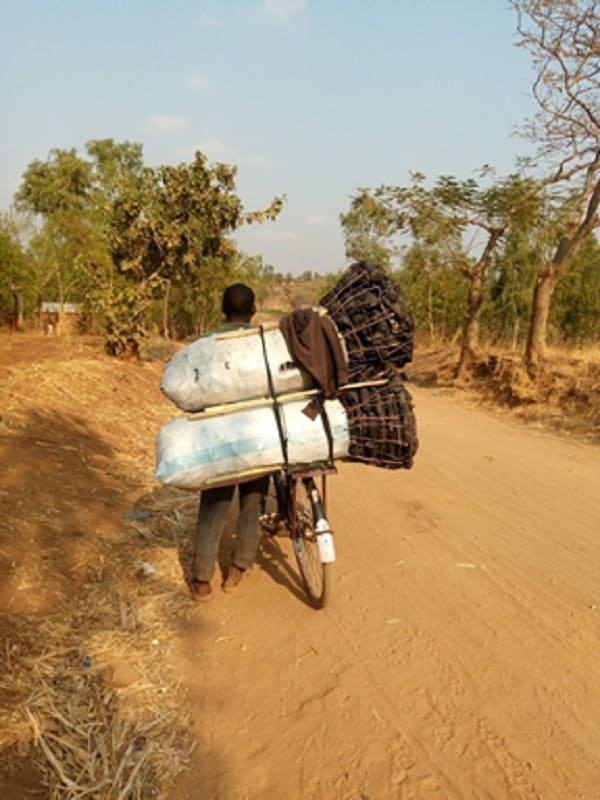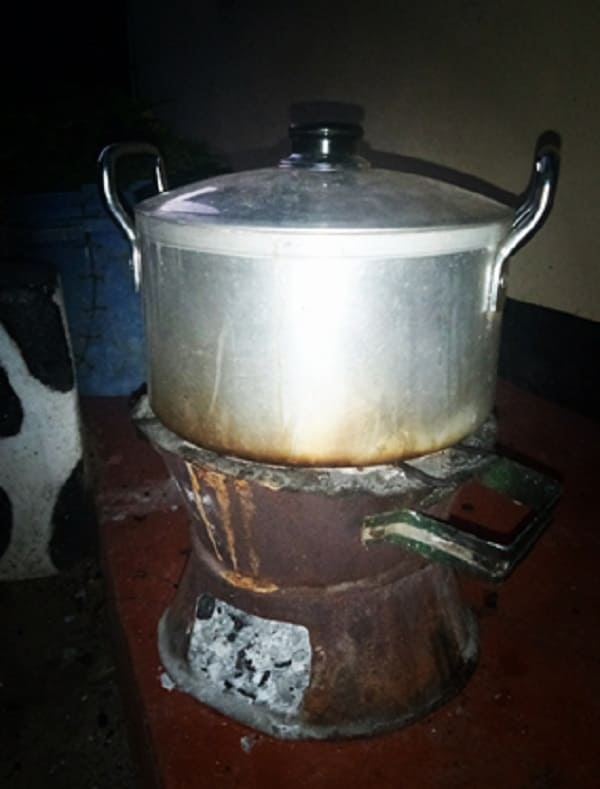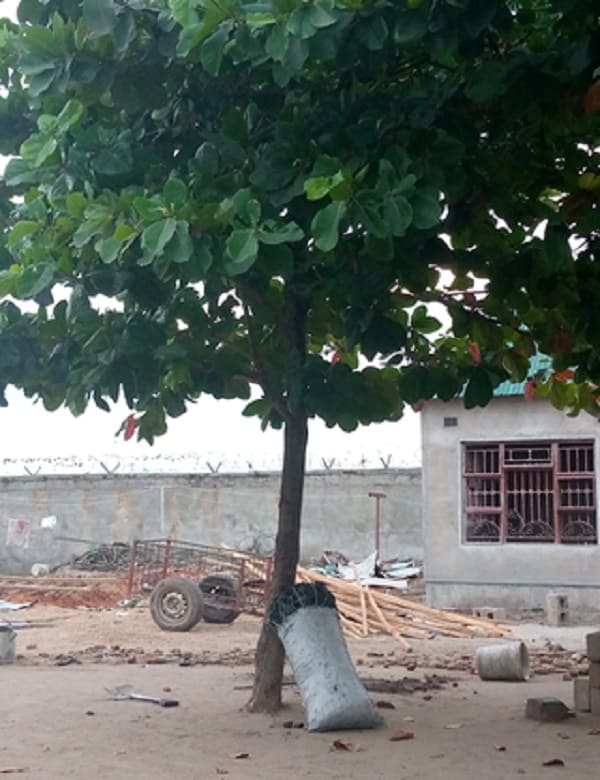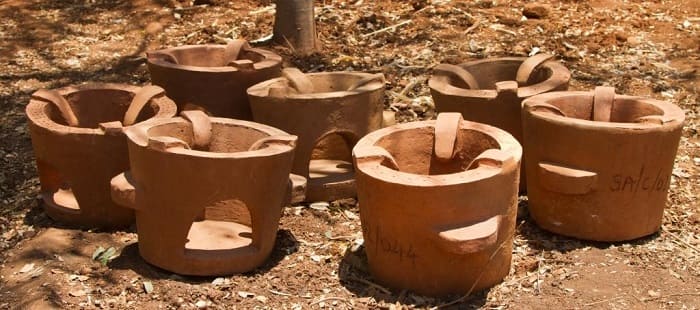USING CHARCOAL IN MALAWI
KUGWIRITSA NTCHITO MAKALA KU MALAWI
エネルギーはマラウイの長い間直面してきている大きな問題の一つです。
2,000万人近くの人口がいる中、たった10%の人だけがエネルギーの主要源である電気を利用できていないという調査がある。
これは、約200万人の人だけが国内で電気が利用できる状態だということです。
この10%の多くには電気料金がかなり高く、マラウイ人が代わりにとなるエネルギーの一つである炭(マカラ)を探すことに繋がっている。
Energy is one of the major challenges that Malawi has been facing for a long time. In a country of close to 20 million people, research has it that only 10% of the population has access to electricity which is the main source of energy. This means that approximately only 2 million people have access to electricity in the country. A good number of this 10% find electricity bills to be very expensive. This has led to Malawians to look for alternative sources of energy one of them being Charcoal (Makala).
Mphanvu zophikila ndi kuunikila ndi vuto limodzi limene a Malawi akhala akukumana nalo kwa nthawi yayitali. Mu dziko la anthu pafupifupi 20 million, kafuku amaonetsa kuti anthu okwana 2 million ndi amene ali ndi kuthekela kogwilitsa ntchito mphanvu ya magetsi. Mwa anthu ambiri amene amagwiritsa ntchito magetsi amaona kuti kugwilitsa ntchito magetsi kumafunika ndalama zambiri. Izi zimapangitsa kuti a Malawi ambiri asake njira zina zomwe angagwilitse ntchito pophika monga makala.
簡単に説明すると、炭は黒い塊で木材をゆっくり燃やすことで作られます。
伐採した木で作られており、ちょうどよい大きさの丸太に切られます。この丸太は、私たちが炭と呼ぶ黒い塊を作るために一定の温度で燃やされます。
ほとんどのマラウイ人が料理をするのに炭に頼っており、炭の需要は、人々を炭販売ビジネスへ乗り出すチャンスを生み出している。
マラウイで炭の製造と販売は禁止されていますが、特に農村部の人々は、自分たちの家族を養うために危険を冒してでも炭の製造販売を行っている人もいます。
炭一袋は場所によってだいたいK2,500~K7,000($3.00~$8.00)で売られており、例えばリロングウェでは、一袋がだいたい$8.00ほどで、マラウイ湖畔のマンゴチでは、約$3.00ほどします。
炭の販売に頼っている家族は、たいてい一日1ドルの貧困ラインよりも低い所得の世帯です。
In simple terms, Charcoal is a black solid that is formed when wood is burned slowly. It is made by cutting down a tree, cutting it into a reasonable log. These logs are then buried and burnt to a certain degree to create the black solid we call charcoal. Most Malawians depend on charcoal to cook their food. The demand for charcoal has created an opportunity for other Malawians to venture into the charcoal selling business. Although making and selling charcoal is not allowed in the country, some people especially those from the rural areas take the risk to make and sell charcoal since they want to earn a living for their families. A bag of charcoal costs around K2500 – K7000 ($3.00 – $8.00) depending on the area it is being sold. For example, in Lilongwe a bag would cost around U$8.00 while in Mangochi a lakeshore district in Malawi it costs around $3.00. Families that depend on selling charcoal are mostly those that leave below the poverty line of one dollar a day.
Makala amapangidwa pamene mtengo waotchedwa pang’onopang’ono. Makala amakhala akuda komanso olimba ndipo amapangidwa mtengo ukadulidwa muzidutsa zidutswa. Zidutsa zimenezi amazikwilila ndipo zimaotchedwa pang’onopang’ono kupanga makala. A Malawi ambiri amagwiritsa ntchito makala pophika zakudya zawo. Kufunika kwa makala kudapereka mwayi kwa anthu ena kuti ayambe kugulitsa makala. Ngakhale kuotcha ndi kugulitsa makala ndi zoletsedwa M’malawi, anthu ena kweni kweni a kumudzi amachita u kadziotche pootcha ndi kugulitsa makala kuti apeze ndalama komanso chakudya. Thumba la makala limatha kugulitsidwa pa mtengo wa K2500 mpaka K7000 kutengela dela limene makalawa akugulitsidwa. Mwachitsanzo thumba la makala limagulitsidwa pa mtengo wa K7000 mu boma la Lilongwe pamene m’boma la Mangochi limagulitsidwa pa mtengo wa K2500. Mwa mabanja amene amadalila kugulitsa makala ambiri amakhala mabanja ovutika.
家を夜遅い時間や朝の早い時間に、2、3個の炭の袋を自転車に乗せて郊外へ売りに出るのはたいてい男である。夜間は炭を警察に没収されないためには最高の時間帯になる。
夕方には、この男たちはその日の家族の食糧となる袋半分のメイズを持って家に戻ります。
運の悪い日には、男たちは警察に炭の袋と自転車を没収されて売ることができずに手ぶらで帰る可能性もある。
家族全員の食べ物がない可能性があるということで、このような家族には当たり前のことなのです。
It is mostly the man who leaves the house late at night or very early in the morning with two or three bags of charcoal on his bicycle heading for the urban areas to sell bags of charcoal. Night time is the best time to travel in order to avoid law authorities who confiscate charcoal. Later in the day these men head home with half a bag of maize which will be food for their families for that day. On a bad day, these men can return home empty handed because their bags of charcoal and bicycles have been confiscated by law enforcers since charcoal selling is not allowed. This means that a whole family might have to spend a day without food. This is a cycle of life for these families.
Nthawi zambiri ndi a bambo amene amachoka pakhomo usiku kapena mbandakucha atanyamula matumba awiri kapena atatu a makala kupita ku mizinda ya ku tawuni kukagulitsa makala. Usiku ndi wabwino kuyenda chifukwa kumakhala kosavuta kuthawa a chitetezo amene amalanda makala. Cha ku madzulo azibambowa amapita kunyumba ndi kathumba ka chimanga chimene chimakhala chakudya cha tsiku limenelo. Likakhala tsiku silinayende bwino azibambo amatha kubwelera kunyumba opanda kali konse atalandidwa makala komanso njinga ndi a chitetezo. Izi zimatanthauza kuti banja limatha kugona opanda chakudya tsiku limenelo. Umu ndi mmene moyo wa tsiku ndi tsiku umakhalila kwa mabanja amenewa.

他にも小規模の自宅での商売として炭販売を取り入れる人もいて、このような商売にはたいてい女性が行っている。
彼女たちは炭の袋を売ったり、低価格で買いやすい値段で売れるように小さなビニル袋に入れて売っています。
このような小さな商売は、家族のためにその日の食糧を買うのに小さな収入となるのです。
Others have adopted charcoal selling as a small household business. Women are the ones who are mostly involved in such businesses. They sell a bag of charcoal and repackage it into small plastic bags which are sold at a minimal and affordable price. These kinds of small businesses provide a small income for families to buy food for the day.
Anthu ena amapanga business yogulitsa makala ngati malonda a pakhomo. Azimayi ambiri ndi amene amapanga malonda amenewa. Amagula thumba la makala ndikuyika makala m’majumbo ang’ono ang’ono amene amagulitsidwa pa mtengo wotsika. Malonda ngati amenewa amathandiza mabanja kupeza ndalama yogulila chakudya.

料理に使われる火鉢(バウラ)
電気の代わりとしての炭の利用は、大きな環境問題を引き起こしています。
炭を作るために多くの木が切り倒され、裸の土地を生み出し、土壌侵食にさらされている。
土地は肥沃ではなくなり、収穫量を下げて、家畜への餌も少なくなります。
木の伐採は多くの地域で気候変動も引き起こしており、場所によっては気温の急上昇を起こしたり、雨不足になったりする場所もあります。洪水を引き起こす豪雨になることもあり、全ては森林伐採の長期的な影響で起きているのです。
The use of charcoal as an alternative for electricity has led to a huge environmental challenge. Many trees have been cut down to make charcoal and this has left a lot of land bare and exposed to soil erosion. Land has lost its fertility leading to low harvests of crops and few feeds for livestock. The cutting down of trees has also led to a change of weather and climate in many areas. Some areas are experiencing a lot of heat while others experience little rains than normal. There are also heavy rains leading to flooding. All this is happening as a long-term effect of deforestation.
Kugwiritsa ntchito makala mmalo mwa mphanvu za magetsi kwayika chilengedwe pachiopsezo. Mitengo yambiri yadulidwa chifukwa chofuna kuotcha makala zimenezi zapangitsa kuonongeka kwa nthaka. Izinso zapangitsa kuti nthaka ikhale yopanda chonde zimene zapangitsa kuti anthu azikolola chakudya chochepa komaso chakudya cha ziweto chizikhala chochepa. Kudula mitengo kwapangitsanso kusintha kwa nyengo. Madela ena akumakumana ndi nyengo yotentha kwambiri pamene m’madela ena mukumagwa mvula yochepa. Madela enanso akumalandila mvula yochuluka kwambiri imene ikumapangitsa kusefukila kwa madzi. Izi zikuchitika ngati zotsatila zodula mitengo.

炭の袋に支えられている木という皮肉のある写真です。
この木がいつかもう一袋の炭を作るのに切り倒されるのかもしれません。
炭作りが木や森を危機にさらせば、人間の生活も危機にさらされることになる。
炭を燃やすと多くの煙を出すので、火鉢を使った調理は大概外で行われます。しかし、特に冬場は部屋を暖めるために中で火鉢を使う人もいます。炭は燃やすと一酸化炭素を出すので、これにより多くの死者を出しているのです。
一酸化炭素を何度も吸い込むと窒息することとなるので、このような死を避けるために、何があっても外で火鉢を使用することを強く推奨されています。
An ironical picture of a tree supporting a bag of charcoal. It might happen that one day this tree will be cut down to make another bag of charcoal. As much as charcoal making poses a threat to trees and forests, it also poses a danger to human life. As charcoal is burning, it produces a lot of smoke and because of this cooking using a charcoal burner is mostly done outside. However especially during winter some people take a charcoal burner inside the house in order to heat up a room. This leads to a number of deaths because charcoal produces carbon monoxide when burning and when people inhale this air for some time, they end up suffocating. It is highly advised that one should use a charcoal burner outside of the house at all costs in order to avoid such kind of deaths.
Chithunzichi chikuonetsa thumba la makala litatsamila mtengo. Zitha kudzatheka kuti tsiku lina mtengo umenewu utha kudzadulidwa pofuna kupanga makala. Pamene kuotcha makala kumayika pachiopsezo pa mitengo ndi nkhalango, kumapelekanso chiopsezo pa moyo wa anthu. Makala akamayaka amatulutsa utsi wambiri choncho kuphikila pa makala kumachitikila panja pa nyumba. Nthawi zina zimachitika anthu kutenga mbaula ndi kulowa nayo mnyumba kwambiri mu nyengo yozizila ndi cholinga chofuna kutentha. Izi zimapangitsa kuti anthu ena ataye moyo wawo chifukwa makala amatulutsa mpweya wa carbon monoxide umene munthu akawupuma kwa nthawi yayitali amabanika. Anthu amalimbikitsidwa kugwilitsa ntchito mbaula panja nthawi zonse ndi cholinga chofuna kupewa imfa za mtundu umenewu.
景観も炭の利用によって損なわれています。かつて緑色で多くの自然の森林や動物がすんでいた山が、今は木がなくなって、低木とわずかな木になっている山もある。
政府は炭の販売を禁止して炭の利用を減らそうとしていますが、もう取り返しのつかないところまで来ているように見えます。原因の大部分は都市の郊外と農村部では炭の大きな需要があること。
この大きな炭の需要が、炭の販売者がビジネスを続けるモチベーションとなる要因の一つです。
他に行われている努力としては、炭作りのせいで失われた森林を戻すために植樹促進があります。これは良い施策ですが、自然環境の中で既に破壊されたものを実際に止められてはいません。
Scenery beauty is another area that has suffered by the use of charcoal. Some of the mountains that were ever green and were homes to a lot of natural trees and animals are now bald with few shrubs and trees.
Government has tried to reduce the use of charcoal by banning the selling of charcoal, but it seems the situation is at a point of no return. This is mostly because there is a huge demand for charcoal both in rural and urban areas. This high demand for charcoal is one of the factors that motivates charcoal sellers to continue with the business. Another effort that is being done is to promote the planting of trees in order to replace the forests that have been lost due to charcoal production. This is a good initiative, but it does not really stop the destruction that is already done on the environment due to charcoal production.
Kungongola kwa chilengedwe nakonso kwaonongeka chifukwa cha kugwilitsa ntchito makala. Mapiri ambiri amene anali obiliwila komaso malo amene mumapezeka mitengo ndi nyama zachilengedwe pano adayela komanso ali ndi zomela komaso mitengo yochepa.}
Boma lakhala likuyesetsa kuchepetsa nchitidwe ogwilitsa ntchito makala poletsa kugulitsa makala koma zikuoneka kuti ndizovuta kuti nchitidwewu uthe. Izi zili chonchi chifukwa makala ndi ofunikila kwambiri mmadela a kumudzi komanso mma tawuni. Kufunika kwa makala mmadelawa ndi chinthu chimodzi chimene chimalimbikitsa anthu ogulitsa makala kuti azipitiliza kupanga malondawa. Chinthu china chimene chikupangidwa ndi kulimbikitsa kudzala mitengo ndicholinga chofuna kubwezeletsa nkhalango zimene zidaonongeka chifukwa cha kuotcha makala. Ichi ndi chinthu chabwino ngakhale sichikuthetselatu chionongeko chimene chidachitika chifukwa cha kuotcha makala.

clean cook pots (chitetezo mbaula)
ソーラーやガスのような代替エネルギーを提供する別の施策が行われていが、農村部の人々にとってソーラーだけが夜間に家に光をともすことができ、料理には使えません。
多くの場合ソーラーランプを明りに使い、料理となると薪か炭になる。ほとんどの人がガスやソーラー電力が高いと考えているので、料理に使うのはまだ郊外では難しいのです。
他には、炭の利用を減らすのに土火鉢(チテテツォ・ンバウラ)の利用があります。これは火鉢の仲間で料理の時に効率よく熱を利用で、炭の代わりに薪(ンクニ)を使用する。
炭の利用を減らして、マラウイの森と自然を守るためにやれることはまだあるのです。
Different initiatives have been put in place in order to provide people with alternative sources of energy such as solar power and gas. However, for people in rural areas solar only plays a role in lighting up the house at night and not cooking. Mostly they use small solar lamps for lighting when it comes to cooking its either firewood or charcoal. The use of gas and solar power for cooking is still a challenge in urban areas since most people consider these alternatives to be expensive. Another initiative that has been put in place to reduce the use of charcoal is the use of clean cook pots (chitetezo mbaula). These are a type of burners that use heat efficiently when cooking. These cooking pots use firewood (Nkhuni) instead of charcoal. There is more that can be done in order to reduce the use of charcoal and protect trees and the nature of Malawi.
Njira zosiyana siyana zidakhazikitsidwa ndi cholinga chofuna kuwapatsa anthu mwayi ogwiritsa ntchito mphanvu ya dzuwa komanso gasi. Komabe kwa anthu ambiri okhala kumudzi mphanvu ya dzuwa imagwilitsidwa ntchito powunikila usiku osati kuphikila. Nthawi zambiri anthu amagwilitsila nyali za mphanvu ya dzuwa pofuna kuphikila koma nthawi yophika amagwilitsa ntchito nkhuni kapena makala. Kugwilitsa ntchito gasi kapena mphanvu ya dzuwa pophikila kumafunikaso ndalama zambiri mmadela a mmatauni. Njira ina imene inakhazikitsidwa pofuna kuchepetsa kugwilitsa ntchito makala ndi kugwilitsa ntchito chitetezo mbaula. Uwu ndi mtundu wa mbaula umene umagwilitsa ntchito moto moyenelela nthawi yophika. Chitetezo mbaula imagwilitsa ntchito nkhuni osati makala. Zilipo zambiri zimene tingapange pofuna kuchepetsa kugwilitsa ntchito makala ndi kuteteza mitengo komanso chilengedwe cha Malawi.
寄稿者
ブロガー:オスレイ・ムティサウ
Blogger:Olley Mtisau
人文学の学位を取得。
持続可能な開発についてのアイディアについて興味を持ち、異なる文化を持つ人と交流したり、仕事をすることが好き。
趣味はハイキング、ボランティア、スポーツ鑑賞
Olley Mtisau holds a Bachelor’s degree in Humanities. He interested in sustainable development ideas and likes to work and interact with people from different cultural backgrounds. In his spare time he loves to go hiking, volunteer or watch sports.
Work: Field Officer
E-mail: olleymtisau@gmail.com
Resident Area: Lilongwe

 Moni Malawi
Moni Malawi 